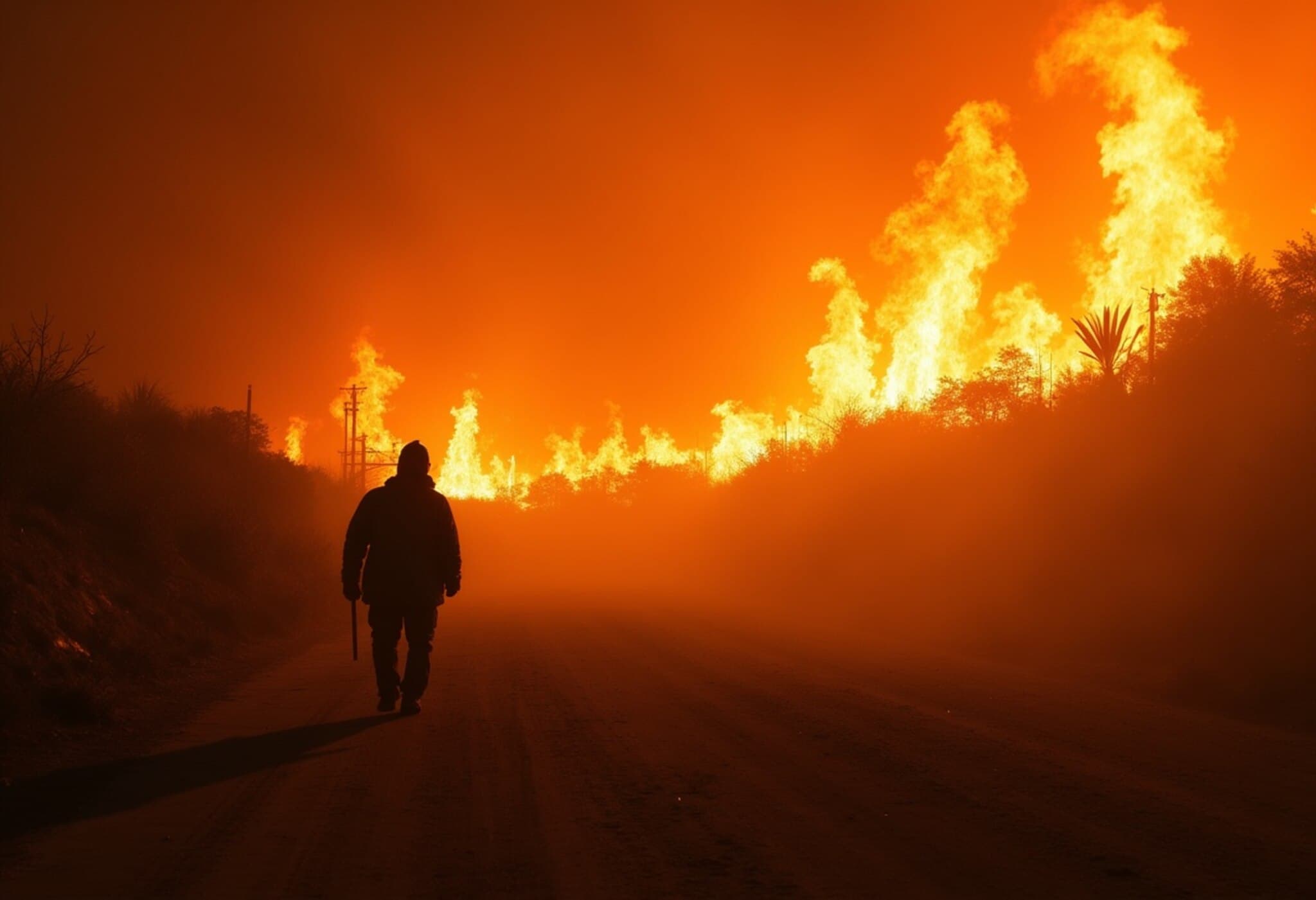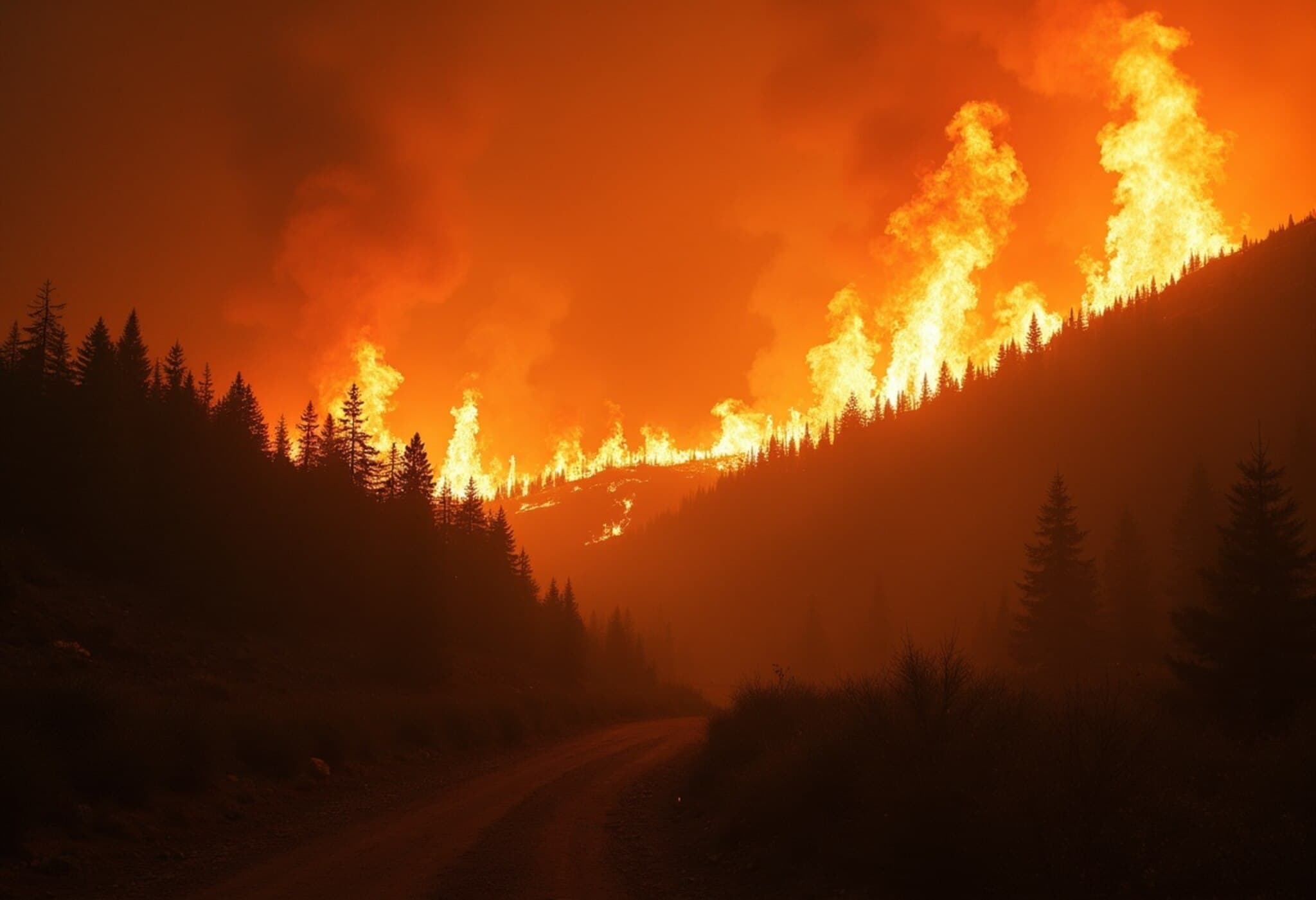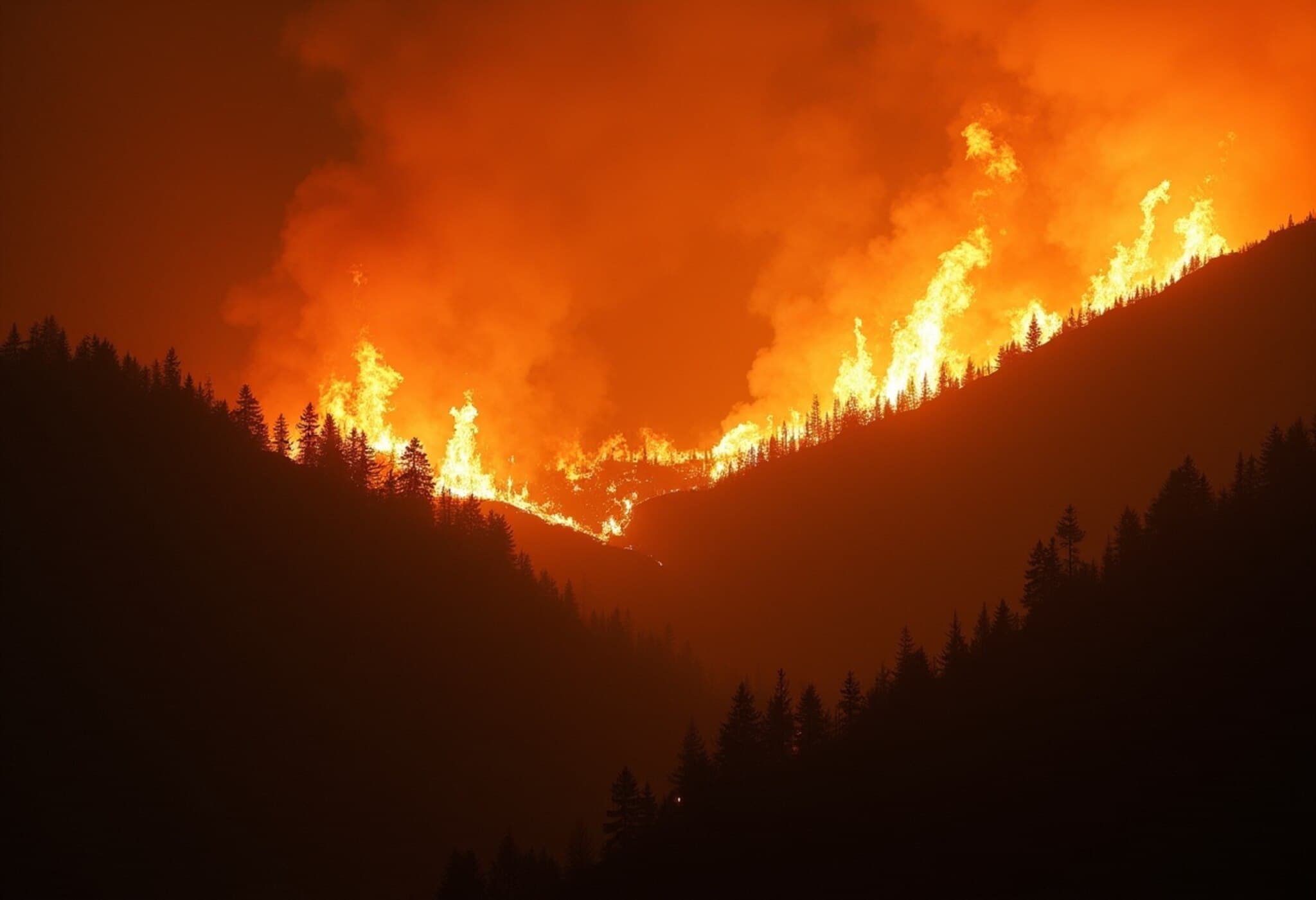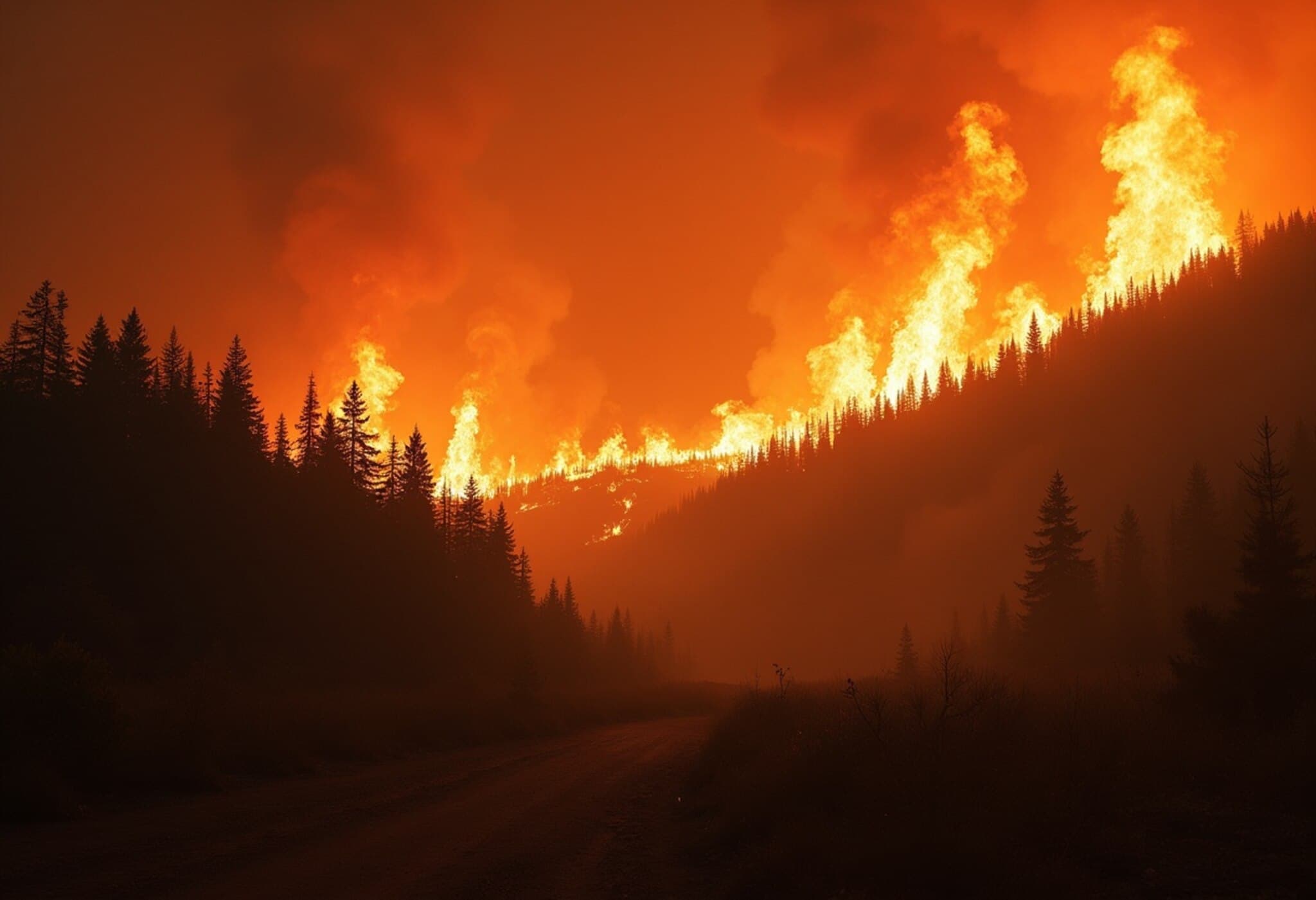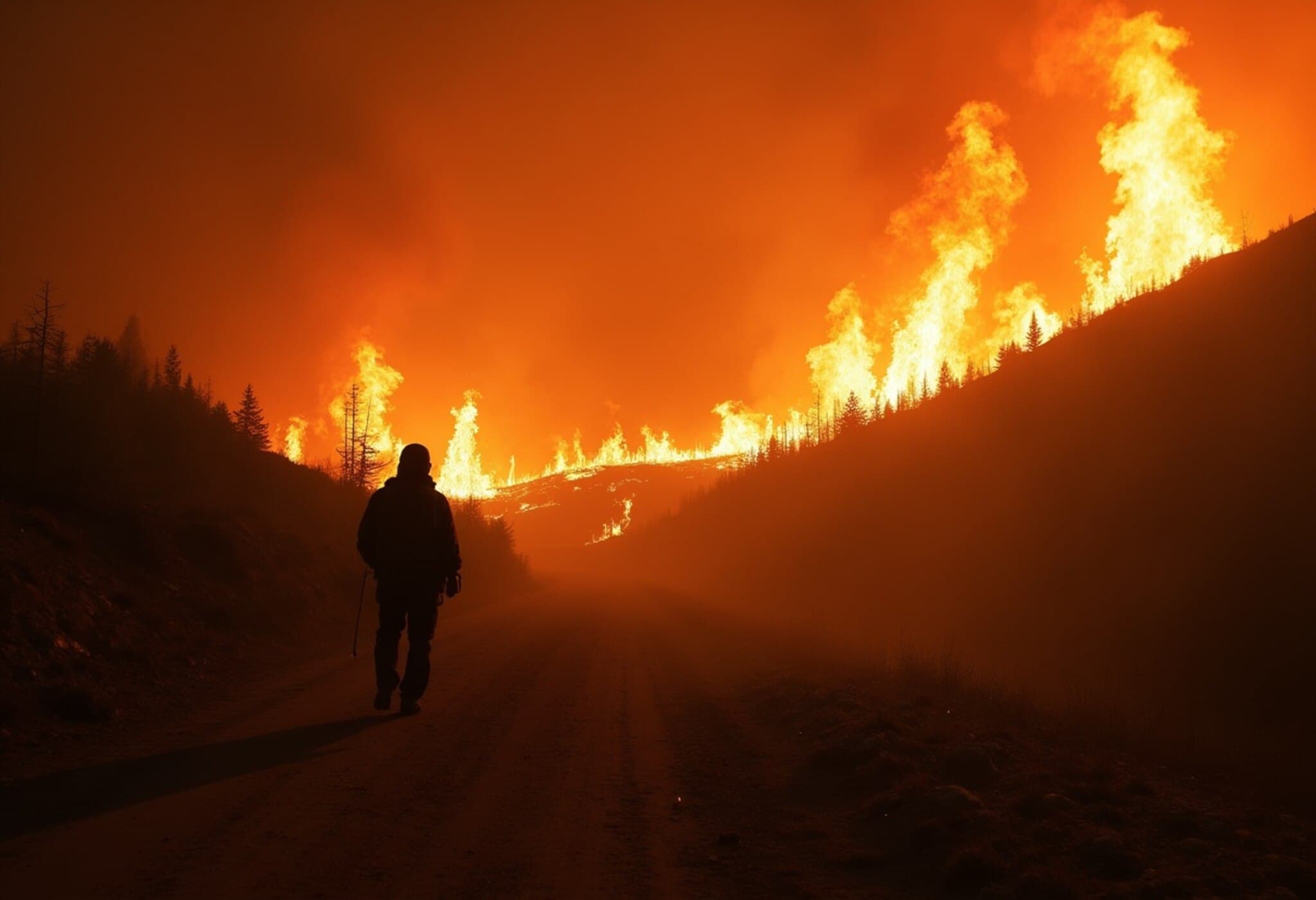Record Heatwaves and Wildfires Ravage Europe: A Climate Emergency Unfolds
As parts of Europe grapple with soaring temperatures surpassing 40 degrees Celsius (104 Fahrenheit), the continent confronts a new normal of relentless heatwaves and devastating wildfires. This alarming trend underscores Europe's status as the fastest-warming continent, heating up at twice the global average since the 1980s, according to data from the European Union’s Copernicus Climate Change Service.
Europe's Accelerated Warming: A Stark Wake-Up Call
Europe’s accelerating temperature rise is not just a statistic; it is reshaping landscapes, economies, and lives. Last year marked the hottest on record both globally and specifically in Europe, setting the stage for this summer’s extreme conditions. Scientists emphasize that this surge in heat is directly linked to human-induced climate change, primarily from burning fossil fuels like coal, oil, and gasoline that trap greenhouse gases and disrupt natural weather patterns.
Spain and Portugal: Battling Flames and Displacement
Spain faces one of its harshest summers in recent history. A large wildfire near Madrid, which erupted Monday night, has been mostly contained but tragically claimed at least one life. Firefighters, aided by nearly a thousand soldiers, continue to fight multiple blazes across Castile and Leon, Castile-La Mancha, Andalusia, and Galicia. These fires have forced thousands, including vacationers from beach resorts in southern Spain, to evacuate. Encouragingly, some evacuees have been allowed to return, but the crisis highlights the vulnerability of popular tourist destinations increasingly threatened by climate change.
In Portugal, over 700 firefighters are battling a significant fire in the Trancoso municipality, northeast of Lisbon. Additional smaller fires in northern regions further strain the country’s firefighting resources.
Turkey: Wildfires Spark Mass Evacuations and Disruptions
Northwest Turkey faced a major wildfire in the Canakkale province, which forced the evacuation of approximately 2,000 residents, some transported by sea to safety due to the fire’s spread towards residential areas. The fire also severely impacted maritime activity and resulted in 77 hospitalizations from smoke inhalation. While this major blaze is now largely controlled, emergency responders remain engaged with ongoing fires in Manisa and Izmir provinces, underlining the persistent threat wildfires pose across the region amid dry conditions and strong winds.
France: Red Alert for Heat and Continued Fire Risks
France has issued its highest temperature warnings across southern regions, expecting a second consecutive day above 40 degrees Celsius. This heat wave is creeping northeast towards Paris, where high temperatures are also anticipated. Public health initiatives include offering free or discounted access to public swimming pools, aimed at helping residents cope with the oppressive heat.
The risk of forest fires remains critical in many areas after a devastating blaze in the Aude region last week. Although officials have the fire mainly under control, hotspots persist that could reignite, demonstrating the long tail of wildfire recovery efforts.
Greece: Widespread Fires and Urgent Evacuations
Seven major wildfires across western Greece have destroyed homes and businesses and led to multiple evacuation orders. One of the most concerning fires threatened Patras, Greece's third-largest city, where a forest fire approached industrial zones, complicating firefighting operations.
High winds continue to impair efforts on the tourist-favored islands of Zakynthos and Kefalonia, triggering standby evacuation plans despite no immediate danger to resorts. Additional fires on the mainland and on Chios island further stretch emergency responses. Greece’s civil protection authorities have issued over 20 mobile alerts in a single day, underscoring the gravity and urgency of the situation.
United Kingdom: Another Heatwave On the Horizon
The UK braces for a heatwave with temperatures expected to reach 34 degrees Celsius (93.2 Fahrenheit), particularly in southern England and London. Given the UK's typical climate, experts define a heatwave as three consecutive days exceeding 25 degrees Celsius nationwide — or 28 degrees in London — highlighting how even moderate temperature spikes can disrupt daily life and strain infrastructure.
Expert Insights: Unpacking the Bigger Picture
- Climate Feedback Loop: These extreme weather events illustrate a worrying feedback loop where heat intensifies dryness, thereby increasing wildfire susceptibility.
- Economic and Social Strains: The displacement of thousands and damage to key economic sectors like tourism and agriculture reveal the broader societal impacts beyond immediate destruction.
- Policy Implications: The escalating crisis demands urgent policy responses, including stronger climate mitigation commitments, enhanced firefighting capabilities, and infrastructure adaptations tailored for heat resilience.
- Community Preparedness: The importance of community alert systems and proactive evacuation protocols is underscored by rapid-onset wildfires and heat emergencies.
Conclusion
Europe's record-breaking heat and wildfires this summer are not isolated incidents but symptoms of a warming planet accelerating faster than many regions anticipated. The cascading effects on human health, safety, infrastructure, and ecosystems call for immediate, coordinated action at local, national, and international levels. As millions endure these harsh conditions, the question remains: how prepared is Europe—and the world—to face an increasingly hot and volatile future?

